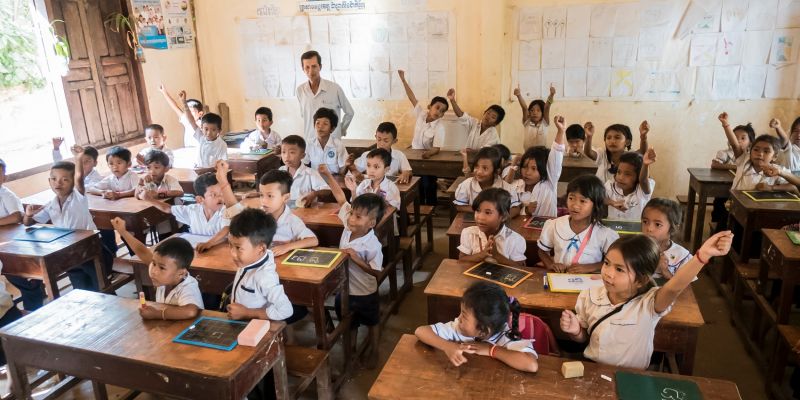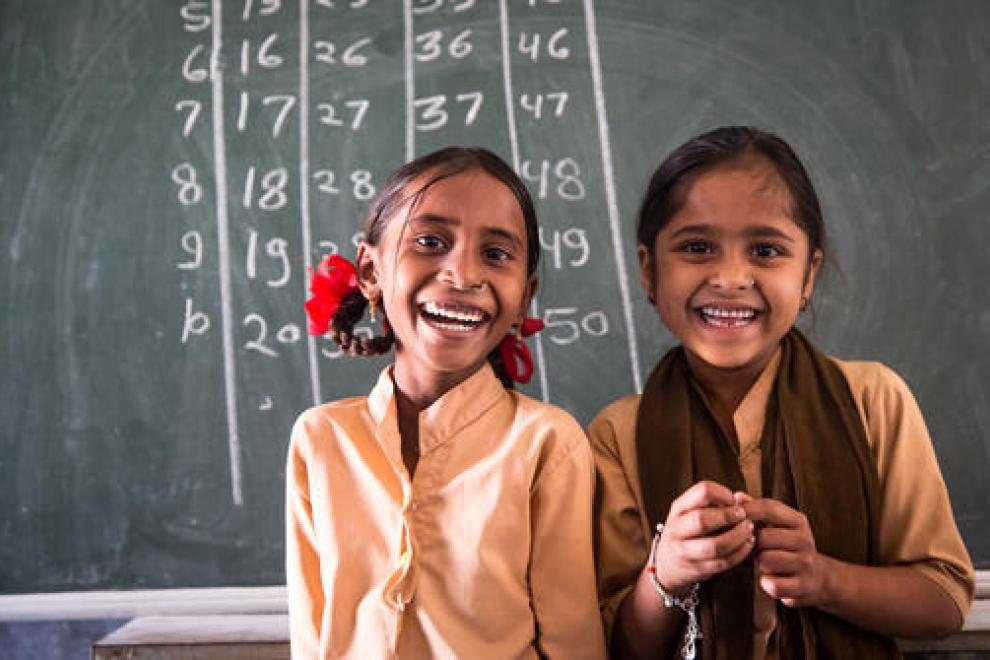The Enrollment of Teachers’ Children in Private Schools Raises Questions about Govt School Quality
By Aubaid Ahmad Akhoon
The importance of government schools in building a strong and resilient society cannot be overstated. Education is essential for personal growth, societal progress, and economic development. However, in many developing countries, limited resources and infrastructure present significant challenges for the education system. In recent years, one particular issue has garnered attention: the enrollment of teachers’ own children in government schools. Teacher Quality: A Major Issue in Government Schools
Despite being the foundation of the education system, some teachers are choosing to send their children to private schools, raising questions about the quality and effectiveness of government schools. This article explores the implications of this trend and its potential impact on the education system.
Teachers play a critical role in shaping the future of a nation by imparting knowledge and skills to the next generation. As such, they have a unique responsibility to lead by example and enroll their own children in Govt schools. By doing so, they gain firsthand experience of the challenges faced by these schools, enabling them to better advocate for improvements and work collaboratively with policymakers and parents.
The enrollment of teachers’ own children in public schools can also help address a broader issue – the perceived advantages of private schools. Private schools are often perceived to have higher academic standards and better opportunities for extracurricular activities, resulting in a preference for them over Govt schools. To address this issue, policymakers may need to introduce measures such as subsidies or incentives to encourage parents to choose Govt schools. Additionally, efforts must be made to improve the quality of facilities and resources available in Govt schools, creating a level playing field for all children, regardless of their economic status.
However, the enrollment of teachers’ own children in Govt schools is just one piece of the puzzle. To create a more equitable and inclusive education system, efforts must be made to address other underlying issues such as teacher training, curriculum design, and school infrastructure. These efforts require collaboration between educators, policymakers, and parents.

One major issue in government schools is the quality of teaching provided. While efforts have been made to improve the facilities and resources available in these schools, the quality of education ultimately depends on the quality of teaching. Not all government teachers are well-versed and capable of delivering quality education. This compromise on quality not only affects the education of the students but also puts the future of the nation at stake.
The issue of teacher quality in government schools is multifaceted. One factor is the qualifications of the teachers themselves. In some cases, teachers with inadequate qualifications, such as those with only a matric or 10+2 degree, are employed in government schools. This affects the quality of education and puts the future of the nation at risk.
To address this issue, it is essential to provide teachers with opportunities for professional development, including training in pedagogy and subject knowledge, to enhance their effectiveness in the classroom. Furthermore, there is a need to address the issue of accountability and performance evaluation of government teachers. It is important to develop a performance evaluation system that effectively measures the effectiveness of government teachers and holds them accountable for the quality of education they provide.
Government Initiative and Parents Design
It is also important to acknowledge that parents have a role to play in deciding where their children should receive an education.
In a major development, more than 8000 school students in the Kashmir division have shifted their admissions from private to government schools in just a week. This mass migration comes as part of the ongoing mega enrollment campaign for the academic session of 2023-24, which was initiated by the School Education Department. The official emphasized that the School Education Department has been more focused on developing infrastructure and academics in Kashmir to provide quality education to students. This mass migration is a positive development that promises to uplift the standard of education in the region, paving the way for a brighter future for the students. While Many parents have come to the realization that private institutions may offer better educational opportunities for their children. These decisions are often based on the perception of higher academic standards, better facilities, and resources. However, this perception can be addressed by improving the quality of education in government schools.
Education Crisis in Jammu and Kashmir’s Government Schools
According to a Project Approval Board meeting chaired by the Secretary of Education and Literacy in the Ministry of Human Resource Development in June 2020, Government elementary schools in Jammu and Kashmir have witnessed a decline of 1.75 lakh students in a year despite claims of drives to increase enrolments. The retention rate is also low, with only 60% at the elementary level and 50% at the secondary level. The annual average dropout rate of Muslim students is also high at all levels. Moreover, some government schools have zero student population. These statistics reveal the need for urgent measures to address the education crisis in the state.

Creating a more equitable and inclusive education system requires a multifaceted approach. It involves addressing the issue of teacher quality through qualifications, training, and accountability measures, as well as addressing the social stigma associated with public education. It also involves providing parents with information and resources that can help them make informed decisions about their children’s education. By working together, we can create a brighter future for our children and for society as a whole. Education is the key to unlocking the potential of individuals and communities, and it is our responsibility to ensure that every child has access to quality education.
The views expressed in this article are solely those of the author and do not necessarily reflect the opinions or views of this newspaper. The author can be reached at [email protected]
Leave a Reply